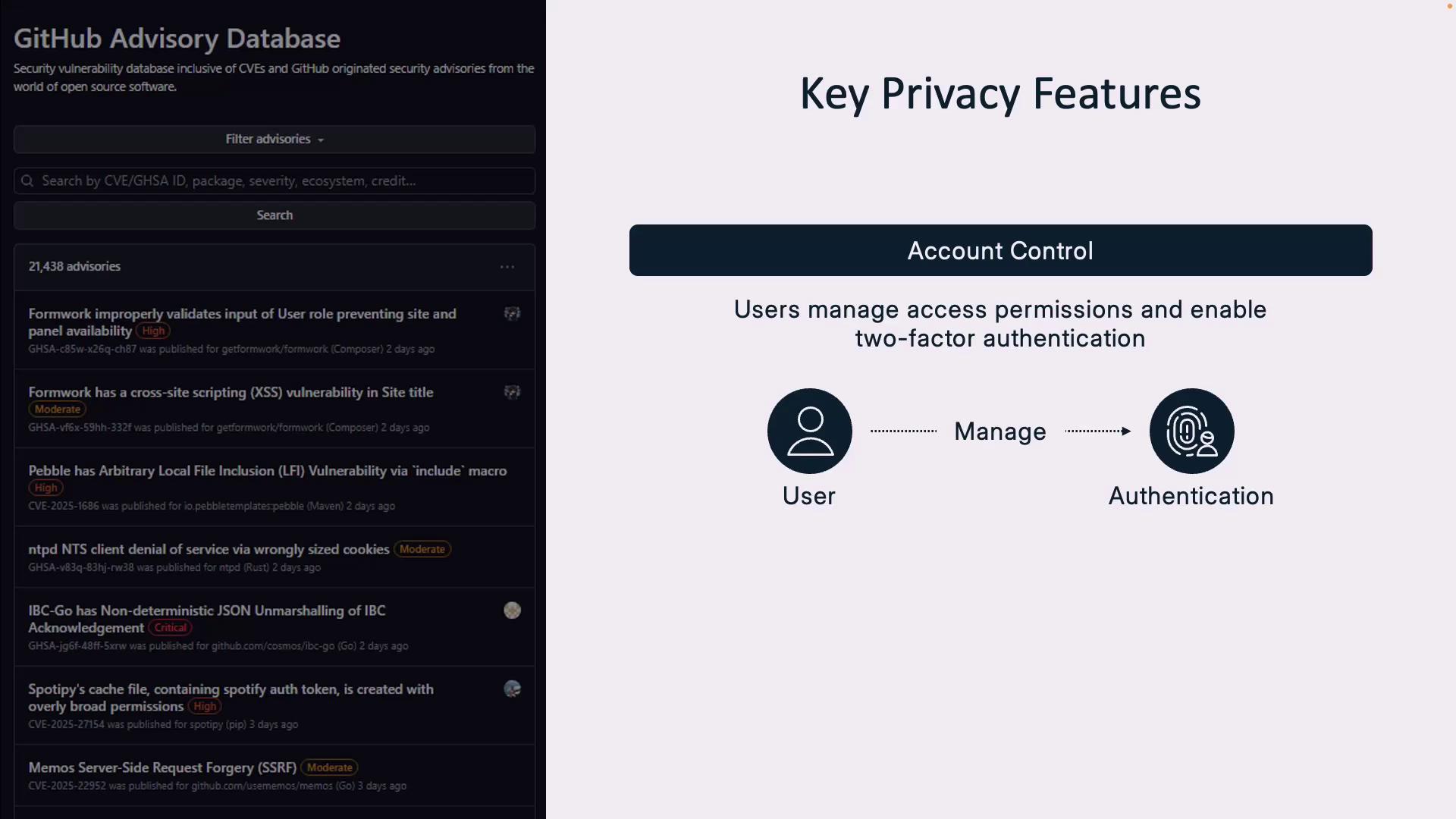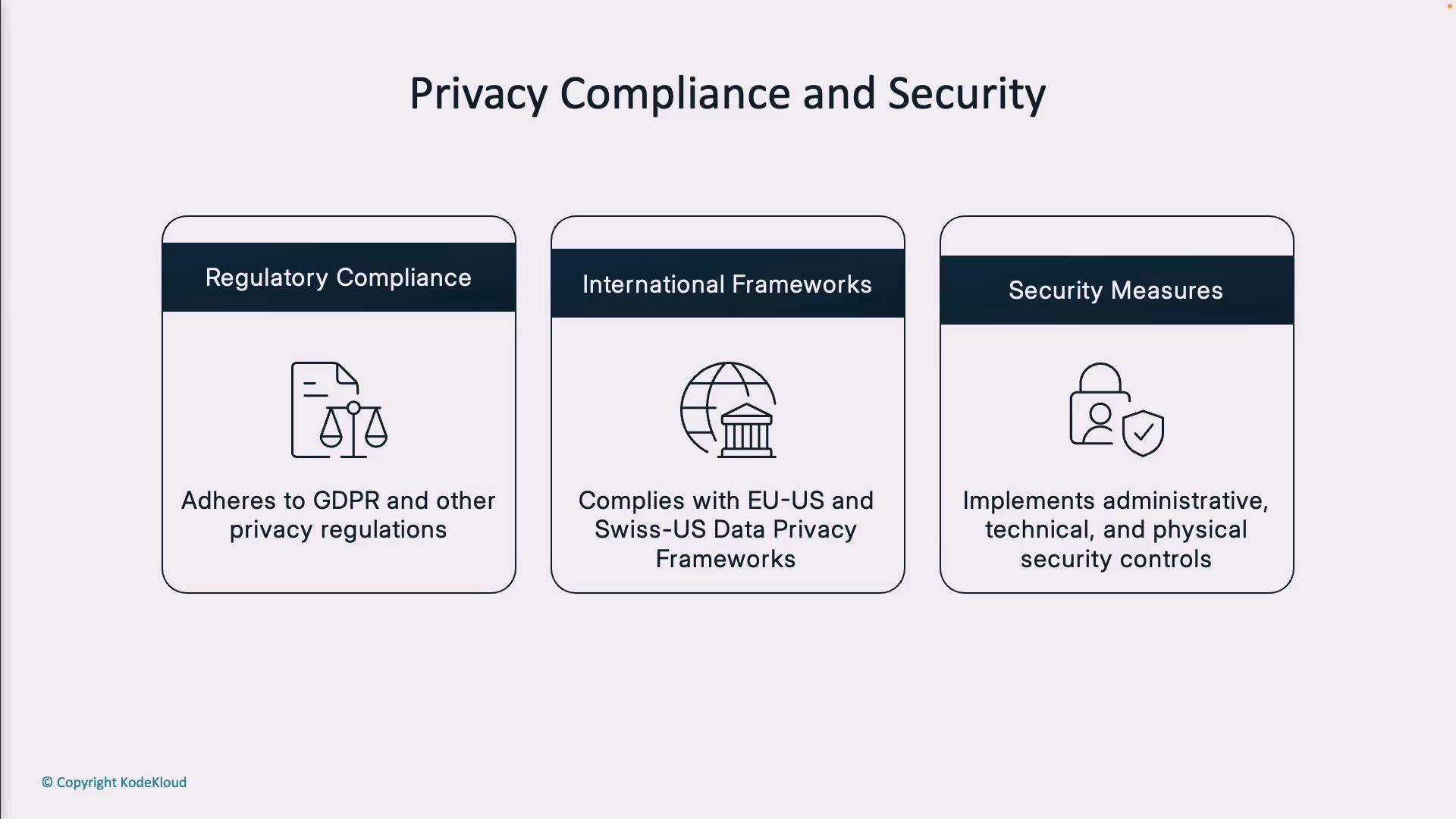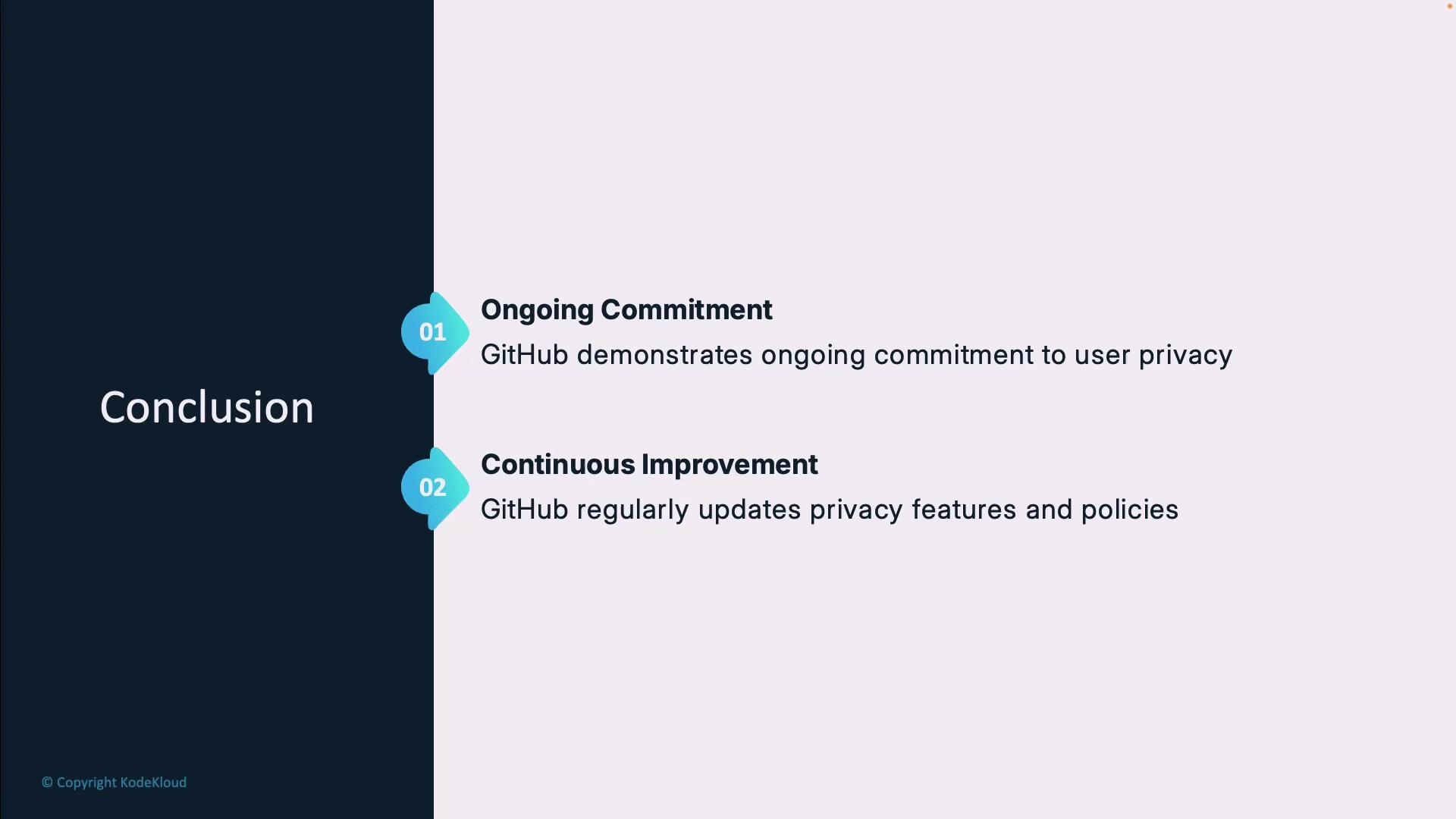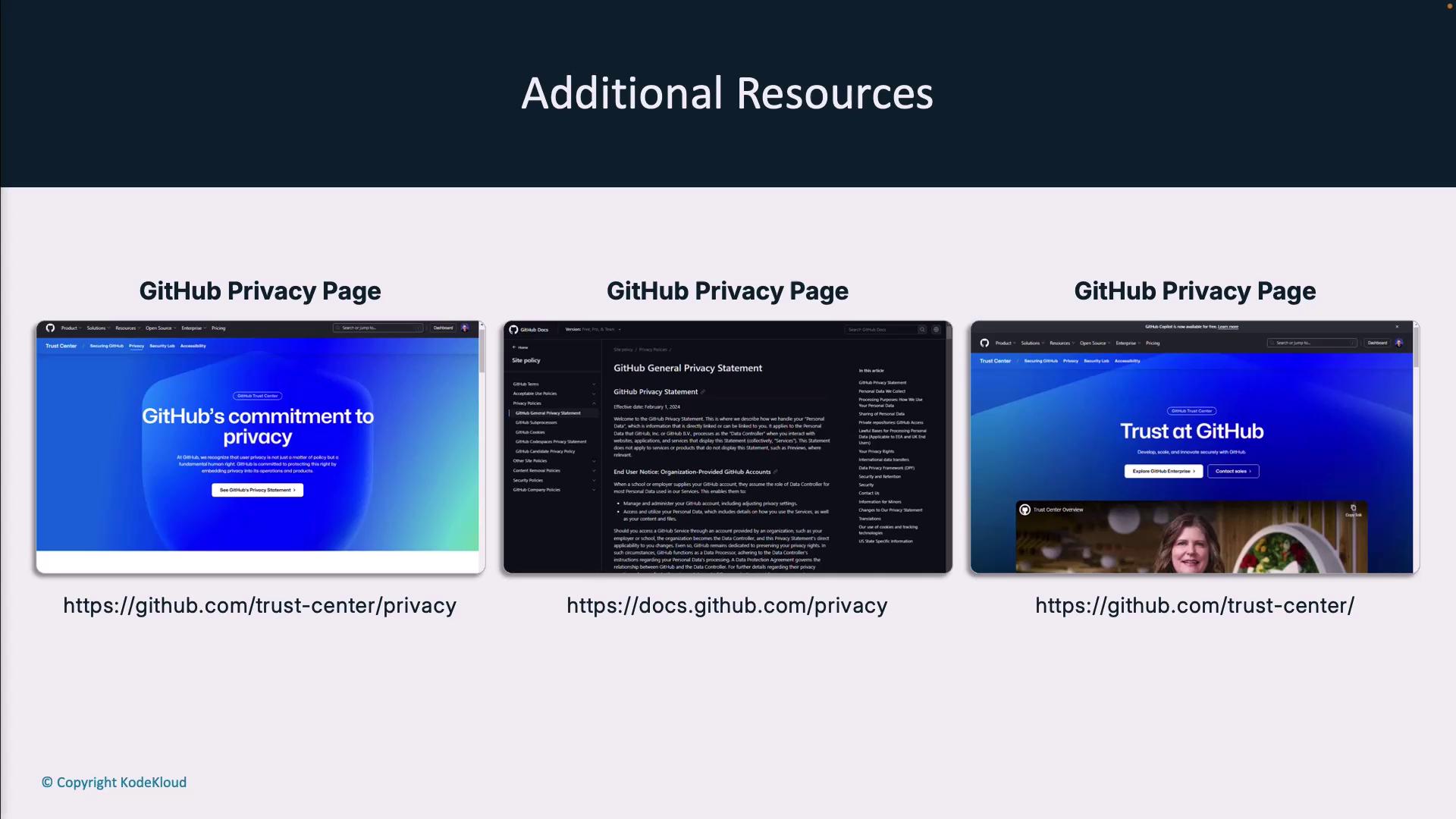GitHub Copilot Certification
Management of GitHub Copilot
Privacy Fundamentals
In this guide, we break down the essential principles and features that underpin GitHub’s commitment to data protection. You’ll learn how GitHub handles personal information, enforces compliance with global privacy laws, and continually evolves its platform to give users control and transparency.
1. GitHub’s Four Core Privacy Principles
GitHub’s privacy program is built on four foundational principles that guide every decision:
| Principle | Description |
|---|---|
| Privacy Protects People | All user data is handled with care to ensure confidentiality and integrity. |
| Privacy Requires Trust, Control, and Transparency | Users get clear, easy-to-use tools to manage settings and understand how their data is processed. |
| Privacy Is Contextual | Data processing adapts to local regulations and the specific context of use. |
| Privacy Is the Expectation | Privacy is embedded into every stage of development, not added after the fact. |
These pillars form the basis of GitHub’s user-centric approach to safeguarding data.
2. Key Privacy Features on GitHub
GitHub provides a suite of features designed to give you control over your account and projects.
2.1 Account Control and Authentication
- Role-based access permissions let you assign precise rights to collaborators.
- Two-factor authentication (2FA) adds an extra layer of security for every login.

Note
Enable two-factor authentication to protect your account from unauthorized access. Learn more at GitHub Docs.
2.2 Repository Privacy
- Private repositories let you decide exactly who can view or contribute.
- GitHub staff access to private repos is strictly limited to troubleshooting verified issues.
Warning
GitHub staff only access private repositories under explicit user consent or when required to resolve a support ticket.
2.3 Data Collection and Use
GitHub only collects the minimum data required to operate and improve services:
- Usernames and email addresses
- Payment and billing information for paid plans
This information helps personalize your experience, secure the platform, and prevent abuse.
2.4 Third-Party Integrations
When you authorize apps or OAuth integrations:
- Permissions are clearly defined upfront.
- You can review or revoke access at any time via your account settings.
3. Compliance and Security Measures
GitHub implements robust controls and adheres to international frameworks:
| Control Category | Examples |
|---|---|
| Regulatory Compliance | GDPR and other privacy laws |
| International | EU–US and Swiss–US Data Privacy Frameworks |
| Security Controls | Administrative, technical, and physical safeguards |

These measures work together to create a layered defense that protects user data across GitHub’s infrastructure.
4. Continuous Improvement and Conclusion
GitHub views privacy as an ongoing commitment. The platform regularly updates features, policies, and controls to address:
- Evolving regulations
- New security threats
- User feedback

By understanding these fundamentals, you can use GitHub—and tools like GitHub Copilot—with confidence, knowing your data is managed responsibly.
5. Additional Resources
- GitHub Privacy Page: Comprehensive overview of data handling practices
- GitHub Documentation: Step-by-step tutorials on privacy settings
- GitHub Trust Center: In-depth info on security, compliance, and privacy

Watch Video
Watch video content